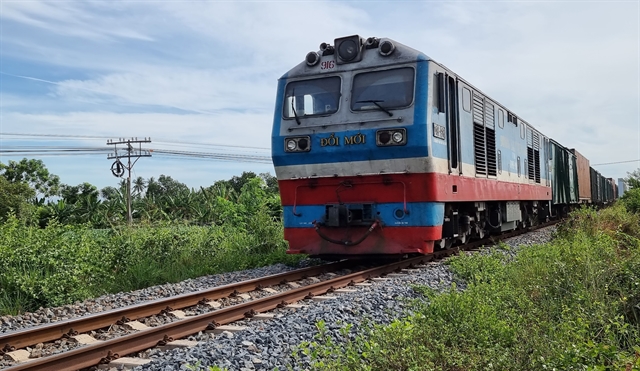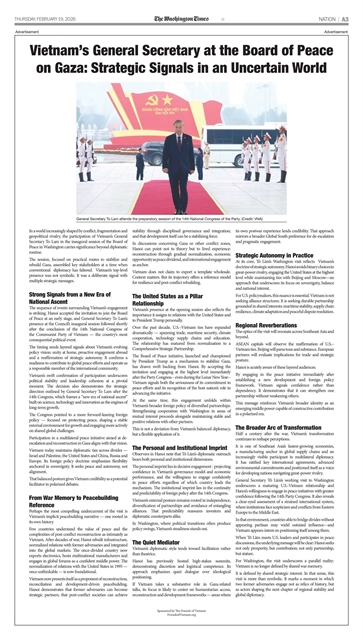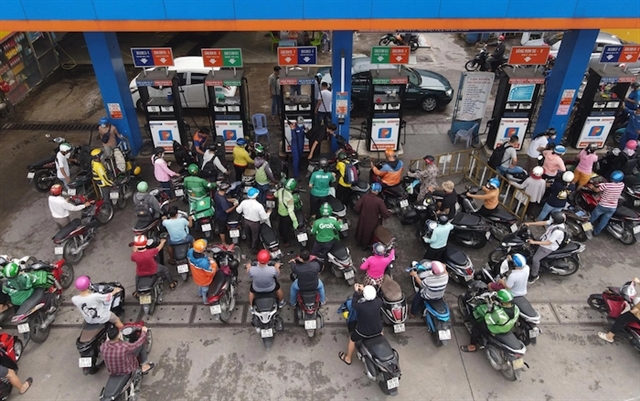 Economy
Economy

 |
| People lining up for fuel at a station in Hà Nội. — VNA/VNS Photo |
HÀ NỘI — The State Bank of Việt Nam (SBV) has issued a document instructing commercial banks to take all measures to support fuel traders.
SBV stressed the importance of fuel as a key commodity with direct and significant influence on the country's macro-economic stability and people's everyday lives, said the document.
Since the beginning of the year, SBV has been working closely with commercial banks to extend credit lines for fuel traders and to grant them favourable exchange rates.
As the global oil price continued to be volatile and the market facing disrupted supply, the Government of Việt Nam has made it a high priority to ensure a stable supply for the domestic market.
The central bank was to implement financial support policies to best support fuel traders in accordance with existing regulations. Traders were advised to stay in close contact with commercial banks to plan ahead for their financial needs.
Meanwhile, the banks were to conduct comprehensive reviews to stay on top of the situation with an objective to streamline the process to make sure traders' financial needs are met in a timely manner.
The central bank expects monthly reports from commercial banks on how and when they plan to support traders, including both retailers and importers who were encouraged to report to the SBV should they experience issues or delays.
During a discussion at the National Assembly, Minister of Industry and Trade Nguyễn Hồng Diên said support from the central bank was to play a crucial role in boosting traders' financial capacity and easing the ongoing fuel shortage across the country.
The National Assembly (NA) has tasked Diên and his ministry with coming up with a plan to establish a stable supply of fuel and to efficiently operate the country's fuel network.
Earlier last month, Minister of Finance Hồ Đức Phớc proposed giving the Ministry of Industry and Trade (MoIT) full authority to adjust fuel prices, instead of the current joint authority between MoIT and the Ministry of Finance. Phớc said it would help streamline procedures and increase efficiency in fuel management.
Some industry experts voiced their support for the minister's proposal, saying it may put an end to the blame trading recently between the two ministries. In addition, MoIT which currently oversees fuel trading and retail activities was in a much better position to come up with a price adjustment mechanism that balances the rights and benefits of traders and consumers.
"The proposal reduces the workload for the Ministry of Finance. In addition, it's only logical for ministries which are in charge to adjust prices of certain commodities," said NA Deputy Trần Văn Lâm, a member of the NA's finance and budget committee.
A number of fuel stations have been reported to close in recent weeks with traders citing numerous difficulties in securing stock and suffering heavy financial losses since the beginning of the year. — VNS